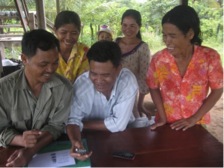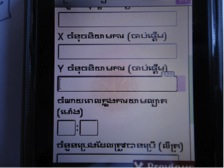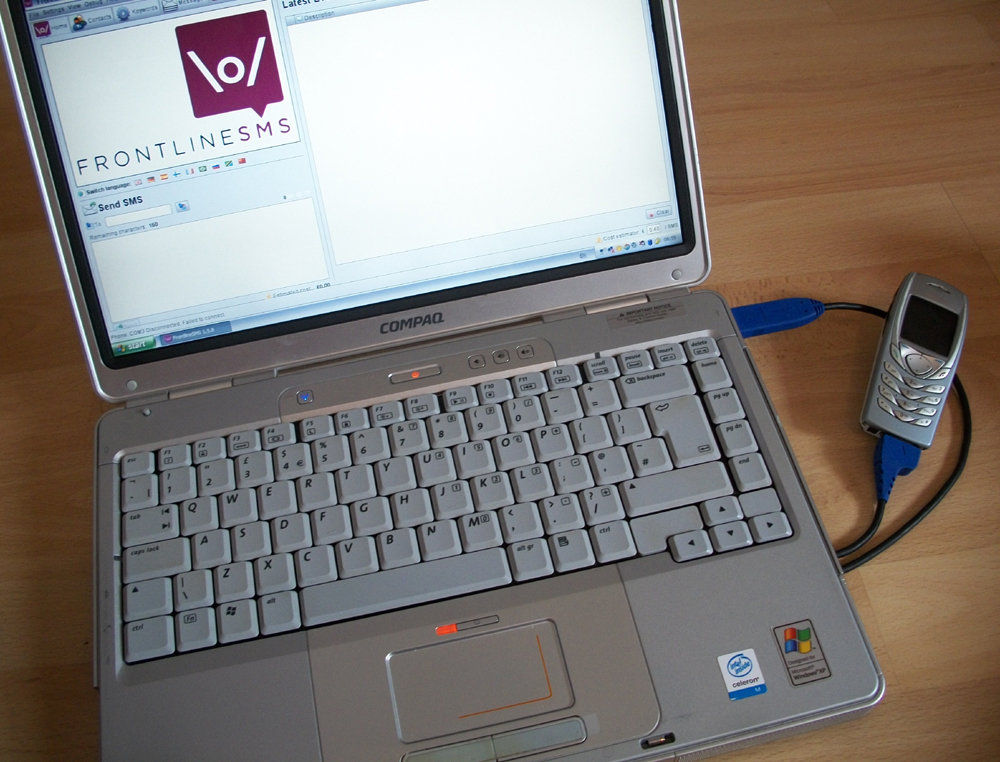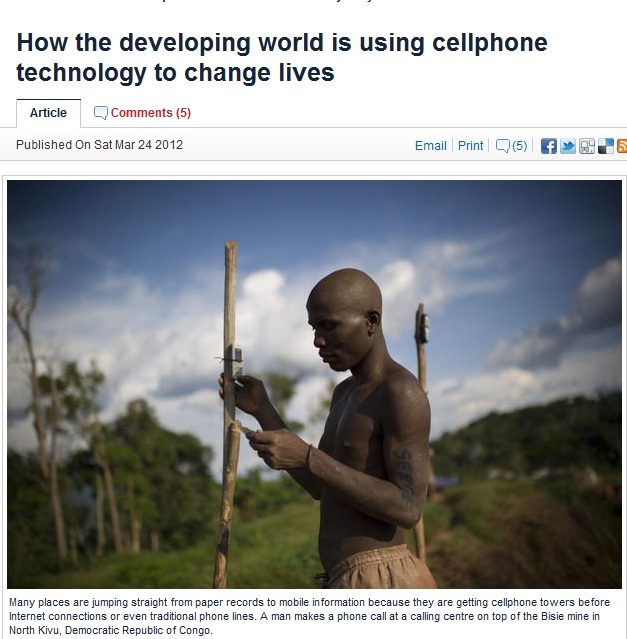The expansion of mobile access has been a common refrain in international development for years now. It plays an important role in supporting human development, from economic and educational opportunities to political freedoms and human rights. Increased access to mobiles has been linked to positive social outcomes in dozens of countries.
Developing a Monitoring and Evaluation Framework for FrontlineSMS
By Juliana Bedoya Carmona, Monitoring and Evaluation intern I have recently joined the FrontlineSMS team in Nairobi as part of an ongoing Monitoring and Evaluation Project rolled out by FrontlineSMS in collaboration with Tufts University Team; Bronwyn Cook, Shuvam Dutta, Amanda Meng and Julie Younes, who are also part of FrontlineSMS Heroes. So far, my experience in Nairobi has been very enriching. Getting to know the FrontlineSMS Nairobi team, meeting FrontlineSMS users and finding out about other M4D and ICT4D start-ups working out of Nairobi’s iHub, has been a very exciting and valuable learning opportunity.
Since December 2011, FrontlineSMS, in collaboration with a multidisciplinary group of graduate students at Tufts University (from the Fletcher School of Law and Diplomacy and the Department of Urban and Environmental Policy Planning) and under the direction of Dr. Jenny C. Aker, has engaged in the development of a new Monitoring and Evaluation framework. As part of this process, I have recently joined the FrontlineSMS team in Nairobi to roll out a test phase of the M&E framework that includes working closely with user organizations in the field, receiving their feedback and analyzing preliminary data provided by them to further improve the framework as it currently stands. The objective of the M&E framework is to capture data that illustrates what type of impact FrontlineSMS may have in user organizations' everyday activities in terms of cost, time and communications efficiencies savings. By developing and testing this framework we aim to better understand and improve the ways in which FrontlineSMS may effectively advance towards achieving its mission; that of lowering barriers to transformative social change by using mobile technologies.
NGOs and other non-profit organizations have used FrontlineSMS in a wide variety of contexts and with myriad goals in mind. From real time malaria diagnosis in Cambodia to tackling violence against children in Benin, FrontlineSMS is being used in over 80 countries to lower communication barriers and facilitate social change around the world. But how exactly does FrontlineSMS transform everyday operations of user organizations and what are the dimensions of these changes?
Measuring the impact of information and communication technologies for development (ICT4D) is drawing increasing attention as more organizations engage with technologies to help them press forward their organizational goals. There are, however, specific challenges linked to monitoring and evaluating efforts in this particular area. Often organizations implementing mobile technology tools such as FrontlineSMS in their operations do not set out from the start to record changes related to the incorporation of this technology. From the viewpoint of organizations providing the technologies, such as FrontlineSMS, tracking performance of their product often proves difficult as they do not have direct access to the data showing efficiencies or changes brought about by the implementation of a given technology. Given that FrontlineSMS is open source software it is also not easy to keep track of the innovative ways in which user organizations are implementing the software in their everyday operations, either as standalone or in combination with other applications. Furthermore, gathering enough data in order to draw confident enough conclusions depends on the number of organizations willing to participate in the M&E framework, fill out surveys and provide feedback that helps tailor the evaluation instruments and selected indicators. As a result, the process of developing an M&E framework for FrontlineSMS has been a gradual and participatory one involving FrontlineSMS staff members, researchers and finally user organizations.
FrontlineSMS has been keen to listen to user organization's experiences of using the software through its annual user survey, the online community space and the development of case studies about specific organizations. The new M&E framework builds on these tools and incorporates additional ones to help draw a more complete picture of the changes that organizations notice after implementing FrontlineSMS, and how these compare among different user organizations. The elements of this new M&E framework include a logical framework, a new survey and the development of new case studies that provide additional qualitative evidence to help refine the tools that have been produced so far.
In the next couple of days we are looking to finalize a list of user organizations willing to partner with FrontlineSMS in this effort. By including user organizations in the development and testing of the first phase of the M&E framework we aim to improve the design of the system in order to capture as much rich data as possible, which will then be useful to the FrontlineSMS team and our users. We anticipate that the M&E framework as well as its results will contribute to improved understanding of the usability, benefits and challenges of implementing FrontlineSMS software; providing a clear picture of the types of costs, time and communication efficiencies that could be achieved by using FrontlineSMS; and offer a basic framework for user organizations to track their own communications, cost and time management performance in those areas in which they implement FrontlineSMS.
If you would like to find out more about our M&E framework please contact us at info@frontlinesms.com . We are particularly keen to hear from new and existing users of our software eager to measure the impact FrontlineSMS is making to their work.
A transition announcement from our Founder, Ken Banks
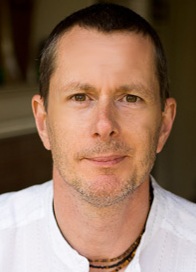 From FrontlineSMS Founder, Ken Banks
From FrontlineSMS Founder, Ken Banks
For the past six-and-a-half years, FrontlineSMS has been something of a labour of love for me. Initially inspired by a decade of work with grassroots non-profits across the African continent, FrontlineSMS spoke directly to how I felt development should be done. Three years at university, dozens of field trips and countless discussions with development professionals convinced me that the future was bottom up, yet many of the mobile tools I came across in the early years of the discipline were quite the opposite. Tools, I believed, needed to be simple, appropriate, give control to the user and be built with those non-profit users in mind, and up until then little was. In 2003, when I started my career in mobile, it was clear that the technology held huge potential for the grassroots NGO community. As I approach my ten year anniversary that potential has largely been proved, but we're still some way off reaching our full potential. It's been an honour to be part of the growth, and an honour to have helped - in some small way - the work of countless dedicated NGOs as they battle to use mobile in their work.
Although the idea for FrontlineSMS came about after a series of conservation trips to South Africa and Mozambique, I had a hunch that conservation NGOs in other places faced the same communication challenges. I also felt that other disciplines - health, agriculture, education and human rights among them - were no different, so FrontlineSMS did not seek to solve a particular problem in a particular place, but sought to be an all-purpose tool, and be all things to all people. Today those hunches bear out, with FrontlineSMS in use in over eighty countries in over 20 sectors of development. It's been an incredible few years, and over that time it's become clear that FrontlineSMS has much greater potential than I ever imagined.
I've always maintained that it's just as important to be aware of your limitations as your strengths, and as FrontlineSMS grew its way out of my one bedroom flat in Cambridge and my VW Camper home at Stanford University, it became clear to me that the project needed a whole new set of skills to take it to the next level. In one of my favourite blog posts - " The Rolling Stones School of Innovation Management" - I wrote about how the Rolling Stones needed three different managers over the course of their careers, each of who had entirely different skills needed at different times in their growth. Funnily enough, FrontlineSMS follows a similar trajectory with different needs at the technological, business and organisational levels. As I wrote:
"As The Stones example demonstrates, each phase requires a very different skill set, and it would take an extraordinary individual to be able to manage and deliver successfully on each. While I may have been the right person – in the right place at the right time at the very least – to successfully deliver on Phase One, that doesn’t mean I’m the right person for Phase Two, or Three. A large part of building a successful organisation is assembling a talented, diverse team with complementary skill sets. Identifying gaps and being honest about our own strengths and weaknesses is a large part of the process".
Since the middle of 2011 I've been working closely with a new Senior Management Team at FrontlineSMS, working towards the announcement we're making today. Laura Walker Hudson and Sean Martin McDonald have worked tirelessly helping prepare FrontlineSMS to meet new challenges and prepare us for our next stage of growth. They and the team have welcomed new, talented staff, released in-depth user guides, case studies and resources, published two academic articles, started a consultancy, brought in new funds, released Beta versions of exciting new FrontlineSMS products, future-proofed the software with a new, extendable, browser-based version, established a new UK entity, opened US and Kenyan offices, and recruited two Boards of Directors. It's been a busy 18 months, and we're in great shape as we enter a new and exciting phase in the history of FrontlineSMS, with Sean and Laura at the helm. Going forward, Laura will be CEO of the kiwanja Foundation, which houses our free, open-source software and user support. Sean is CEO of the kiwanja Community Interest Company, which supports users with program design advice, houses our sector-specific projects, and manages custom extensions to the platform. You'll hear more about our plans for the future from them in the coming days.
As for me, I'll continue my association with FrontlineSMS as before, and will continue to support it enthusiastically in person at conferences, through my blog, through book chapters and wider writing, and in my role of Chair of the Board. As to what I'll do with some of my new-found free time, I'm also planning to get stuck into a number of new project ideas which have been bubbling away for the past two to three years, ideas which I've been unable to do anything with due to my full-time commitment to FrontlineSMS. Further details on these new projects will be announced on my blog over the summer, so watch this space!
It's an incredible time to be working in the field of technology-for-social-change, and I'm excited about the future for FrontlineSMS, its users and the team behind it. For some people, passing the baton on such a personal project would be something of a challenge. Knowing that the project is in safe hands has made the decision much easier for me. FrontlineSMS was always going to be bigger than one person. With a fantastic team behind it, it now has the chance to step up and meet the potential it clearly has.
Wishing you all the very best,
Ken Banks, FrontlineSMS Founder
"Genius happens when you plan something else" FrontlineSMS Founder Ken Banks features in Wired magazine
 FrontlineSMS Founder Ken Banks was recently invited by Wired magazine to write an article for their "Ideas Bank" column. You can find an extract of the article below. The full version is available via Wired's website here.
FrontlineSMS Founder Ken Banks was recently invited by Wired magazine to write an article for their "Ideas Bank" column. You can find an extract of the article below. The full version is available via Wired's website here.
Depending on how much of a sweet tooth you have, you might not rate chocolate-chip cookies, ice-lollies or crisps as Earth-shattering product inventions, but they do all have one thing in common. Along with microwave ovens, penicillin and Teflon, the ideas behind them came about entirely by accident. Despite this, a common perception of innovation remains one of men and women in white coats crowded over laboratory equipment and mainframe computers. Though this may be generally true for big-ticket items and big pharma, today you may just as likely trace a lot of the smaller -- but equally high-impact -- discoveries and inventions back to someone's garden shed.
The field of ICT4D - information and communication technologies for development - tasks itself with figuring out how to apply many of our everyday technologies for the greater social good, often in the developing world. Ironically, despite the tens of billions spent each year in official aid, some of the more promising ICT4D innovations also happen to have come about by chance. Many of the people behind them didn't consciously set out to solve anything, but they did. Welcome to the world of the "reluctant innovator"...
I would also count myself as a reluctant innovator. In 2004 I found myself working on the fringes of Kruger National Park in South Africa, trying to help the authorities improve communications with the local communities. Mobile phones were beginning to appear there and we considered using SMS to send group texts to community members. The problem was that no group-SMS technology worked in those kinds of hard-to-reach places. A few months later, the idea for a text-messaging platform was born one Saturday night over a bottle of beer and Match of the Day. The result, FrontlineSMS, today helps non-profit organisations in over 70 countries communicate critical messages with millions of the most marginalised and vulnerable people.
To read the full version visit the Wired magazine website.
FrontlineSMS User Community Connecting Across the World: Next User Meet-Up in Cambodia
Here at FrontlineSMS we are often inspired by the power of our user community. It is amazing to see the diverse ways people and organizations make use of our software, and we are always happy to support users in sharing their experiences with the wider community.
Over the past few months we have been excited to see the growing trend of FrontlineSMS user meet-ups; users meetings in different parts of the world, keen to discuss the use of FrontlineSMS software for positive social change. Thus far there have been user meet-ups in Haiti, Uganda and Cambodia, and just yesterday there was a successful user meet-up in Nairobi, too. If you would like to find out more about these user meet-ups, and perhaps even organize one yourself, visit our community forum today!
In the below post Sophie Baron, new FrontlineSMS user, reports on the first FrontlineSMS user meet-up in Phnom Penh, Cambodia.
When you start out using a new software, it is great to have the support of a wider community. When I first started using FrontlineSMS I was keen to learn as much as possible, and meet others using FrontlineSMS too. This is how I got involved with the first user meet-up in Phnom Penh, Cambodia, which brought together a diverse range of social change organizations including PACT, Equal Access, BBC Media Action, CIRAD (Centre de Coopération Internationale en Recherche Agronomique pour le Développement) and Institut Pasteur du Cambodge (IPC).
The goal of this first meeting was for FrontlineSMS users in Cambodia to gather in order to talk about their use of FrontlineSMS, discuss any common successes and challenges encountered whilst using the software, and generally share experiences. The meeting was made up of nine participants and was held at the Cambodian office of PACT, an NGO working on capacity building of local populations.
The meet-up kicked off with people introducing themselves and their projects. Everyone was using FrontlineSMS for different purposes, some for wider media campaigning (Equal access and BBC Media Action), and others for more focused monitoring projects (PACT, CIRAD, IPC). There were different levels of experience within the group. Equal Access had been using FrontlineSMS since 2008 and PACT since 2011, whereas BBC Media Action had only been using FrontlineSMS in Cambodia for one month and at the time of the meeting CIRAD and IPC had not started using the software yet.
During the discussions we were able to share potential solutions to challenges faced when using FrontlineSMS in Cambodia. Common interests were explored, such as the potential of improved collaboration with local mobile service providers. In addition, PACT shared how they have used Khmer script, explaining the opportunities provided as well as the challenges faced.
Personally, this meeting was very helpful for me because I had many questions answered regarding the use of FrontlineSMS. I was also able to email the group to ask for follow up advice when I started actively using FrontlineSMS. It’s so useful to have a local support network to help out with the software.
We hope to welcome new participants to the next meeting in Phnom Penh, which will be held on 30th April at 2pm and will take place at the PACT Office (Address: 3rd Floor, Building A, Phnom Penh Center, Corner of Sothearos and Sihanouk Boulevards, Phnom Penh). If you are interested please join this discussion on the community forum to connect with others in the group.
o/ Here at FrontlineSMS we look forward to hearing how the next meet-up in Phnom Penh goes! o/
About the author of this post:
Sophie Baron is a veterinarian doing a Master in Public Health specializing on epidemiologic surveillance of human and animal diseases. Thanks to a Foundation Pierre Ledoux scholarship Sophie is doing a 6 month internship as part of her studies at Institut Pasteur du Cambodge, under the supervision of Dr Flavie Goutard (CIRAD) and Dr Arnaud Tarantola (Head of Epidemiology and Public Health unit at IPC).
Face-to-Face Help Getting Started with FrontlineSMS
 FrontlineSMS software is designed to be accessible and easy to use ‘straight out of the box’ without the need for expert technical support. That said, when getting started with using a new piece of software we know how helpful it can be to have some guidance. To help users get started with our software, and troubleshoot any problems, we currently offer free user support via our community forum and resources online, but from March 2012, we're also opening our doors to you to offer face-to-face help through our new monthly user support drop-in sessions!
FrontlineSMS software is designed to be accessible and easy to use ‘straight out of the box’ without the need for expert technical support. That said, when getting started with using a new piece of software we know how helpful it can be to have some guidance. To help users get started with our software, and troubleshoot any problems, we currently offer free user support via our community forum and resources online, but from March 2012, we're also opening our doors to you to offer face-to-face help through our new monthly user support drop-in sessions!
Once a month, our offices in Nairobi, Washington DC, and London will be open to users and staffed by our team. There will also be a monthly open chat over Skype for those who can't make it to the physical drop-ins. During these sessions the team will be there to answer your questions, demo FrontlineSMS functionality and generally provide support on using our software. The idea behind the drop-in sessions is to provide an informal opportunity for you to meet our team and ask questions about FrontlineSMS.
For full details on locations, dates and times please click here. Please email info@frontlinesms.com if you plan on coming and provide us with some information on your organization and any issues you are experiencing.
FrontlineSMS has chosen the locations of the drop-in sessions based on our staff and office locations If you’re keen to discuss FrontlineSMS at a face-to-face meeting in your own country then you could always suggest a user meet-up via our community forum, too.
We look forward to hearing from you, and hope to see you at one of our drop-in sessions soon! o/
The Toronto Star: "How the Developing World is Using Cellphone Technology to Change Lives"
FrontlineSMS has recently been featured in an article in the Toronto Star, which provides an overview of information and communication tools being used for development (ICT4D). You can find an extract of this article below, and the full version is available online here.
In Nigeria, a young girl can ask questions about sex discretely through SMS and get accurate information. After the earthquake in Haiti, survivors in remote towns could receive money for food straight to their cellphone. In Senegal, election monitors sent updates on polling stations through their mobile phones, revising an online map in real time with details about late openings or worse. Projects like Learning about Living in Nigeria, MercyCorps in Haiti and Senevote2012 in Senegal are just a few examples of how the rapid spread of mobile technology has changed life in the global south.
Many places are jumping straight from paper records to mobile information because they are getting cellphone towers before Internet connections or even traditional phone lines. This means that for the first time it’s possible for a doctor in Guatemala City to monitor a newborn baby in a rural part of the country...
In 2001, just eight out of 100 people in the developing world had a mobile phone subscription. Now, nearly 80 out of 100 do...
FrontlineSMS
This software allows anyone to set up their own communications hub to send mass messages, manage automated SMS systems and collect data from the field. FrontlineSMS allows users to connect their mobile phone to a computer, transforming communication into something more powerful and manageable.
“If you go to the developing world and you look at how cellphones are being used you can really see that people are already doing this kind of organizational management, communicating with stakeholders, communicating with people they’re working with and for,” said spokesperson Laura Hudson.
The system enables easier management of SMS messages and also allows users to set up mailing lists, collect data and code automated reply systems. Traditional procedures involved checking in over the phone with remotely dispersed members of, for example, an aid team.
“Instead of that they can send an SMS. It’s cheaper for them, it saves time and the data can go straight into their report,” said Hudson.
FrontlineSMS was used to coordinate aid response after the 2011 floods in Pakistan and to manage reconstruction in Haiti. It has also been used to remind HIV patients of best practices and nutritional information.
Many other valuable technologies are featured in the full article from Toronto Star.
FrontlineSMS and Technological Responsibility
FrontlineSMS team members Amy O'Donnell and Flo Scialom are currently helping moderate TechChange's online learning course on Mobiles for International Development (m4d). In addition, FrontlineSMS's Sean McDonald will be a guest speaker on this course in the coming weeks. Our involvement in the course is providing us with a great opportunity to engage with a new group of people who are either working in, or are strongly interested in the m4d sector. The 40 course participants are based over 15 countries and have a rich variety of experience, so there is an exciting range of perspectives to be shared. Whilst helping with this TechChange course it seems like ideal timing to share the below TechChange post on a FrontlineSMS training course held earlier this year:
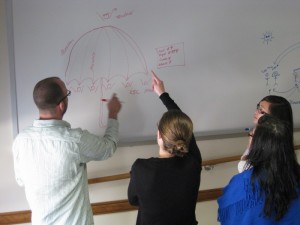
When an innovator is struck with a new idea for a technology, his or her first thought isn’t necessarily “How can this be used for a humanitarian, development, or peace-building cause?” Rather, it is more often “How can I sell millions of copies of this in the Apple App Store?” or “How soon will I be able to sell this to a venture capitalist and use the money to buy my I Am Rich app".
In early 2011 TechChange organized a training with FrontlineSMS that not only taught people how to use the software, but forced them to confront the issue of priorities. Against our tendency to think of ways to use the technology to benefit ourselves, we designed our own projects that used FrontlineSMS to enable social change. There was a spark of awareness that lying dormant in our creativity and innovative thinking is the capacity to use technology in a more responsible way.
Led by FrontlineSMS gurus Sean McDonald and Laura Walker Hudson, we were introduced to FrontlineSMS as a powerful and simple technology, which uses a computer, a mobile phone, and text messaging to easily communicate with groups of people. The potential uses for this technology are boundless, as evidenced by FrontlineSMS’s sector-specific projects that reach “specific fields such as finance, education, law, and media”. While one organization can use it as mobile healthcare for expectant mothers, another can use it to stabilize markets by providing local fishermen with real time price information. We were presented with numerous case studies all validating the fact that open source technology can help bridge the gap between vulnerable populations and the information and tools they need.
We were then split into groups, given a modem connected to FrontlineSMS, and asked to think of a real world problem to confront. It’s interesting to think that every day we sit in front of a computer or play with our iPhones and all of these technologies have the possibility of answering some sort of global need but it very often doesn’t even cross our minds. It’s not an automatic motive. But at the FrontlineSMS training, we were forced to think of others before self, since that was the assignment.
Thus, we trained a room of FrontlineSMS ninjas – compassionate, philanthropic ninjas. They came up with strategies to connect LGBT populations to service providers and to improve parent-teacher relations, and in the process learned about the technical and more importantly contextual issues that must be resolved to bring about real change. TechChange is planning to host more tech trainings throughout the year. We want to get creative people armed with emerging technologies and collaborating on the hardest problems facing our generation. And of course, one of the best parts of open source is the social and community aspect – there was a very nerdy happy hour afterwards which I wasn’t legally allowed to attend but I hear it gets pretty wild.
The above has been re-posted from TechChange blog with permission. Post by Mariel Bartolome, Technical Coordinator at TechChange and a computer science major at the University of Maryland College Park.
Six years On: Reinforcing Our Core Values
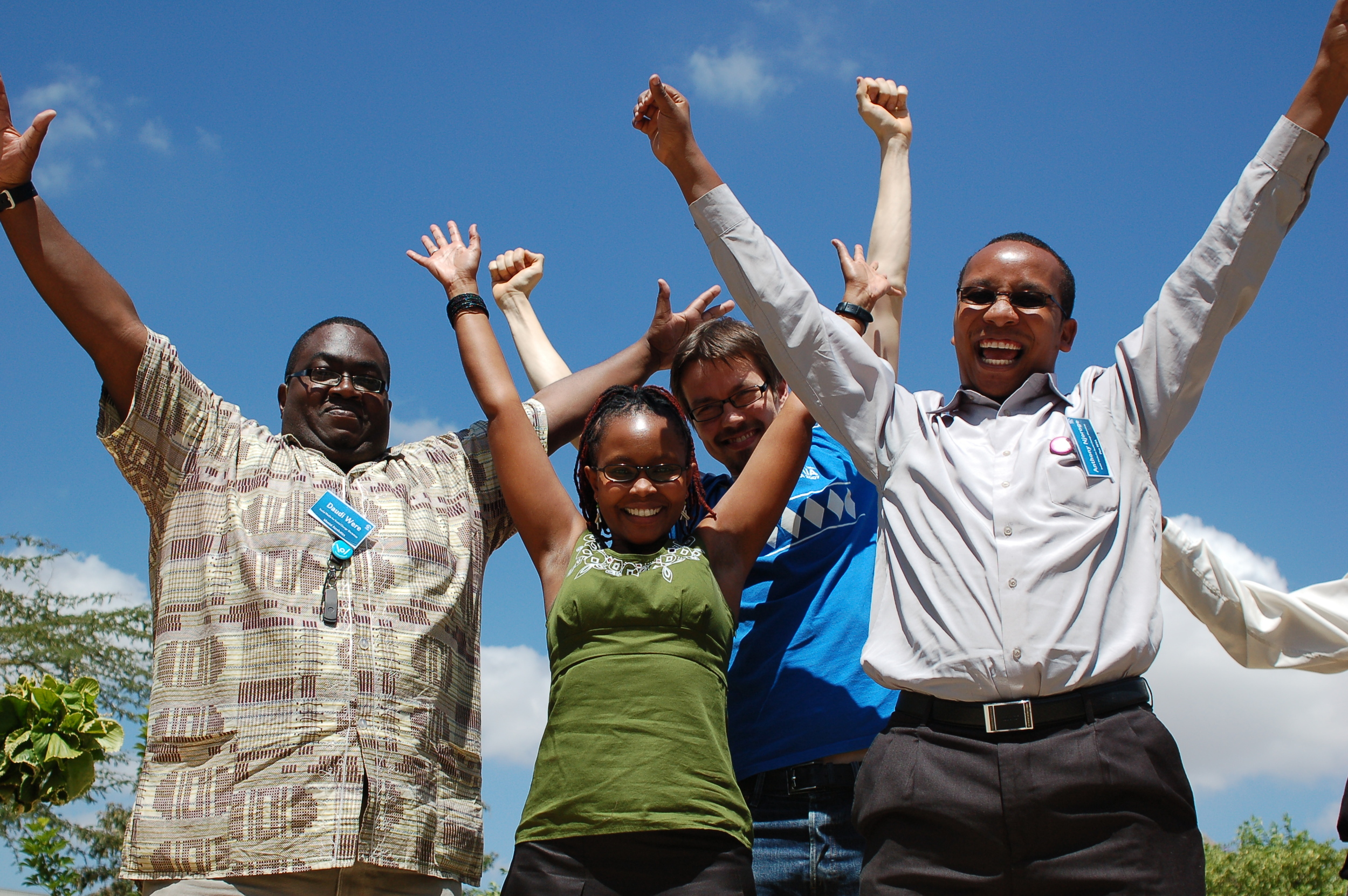 It's hard to believe, but six years ago this month FrontlineSMS was quietly released into the world. There was no press release, no fuss, no fanfare and certainly no funding. "Project SMS" was conceived earlier that year, renamed "FrontlineSMS" a few weeks later, and then cobbled together on a kitchen table in Finland over the summer. For a long time promoting and supporting it was simply a hobby as I continued my life as an ICT consultant. It's an understatement to say that I'm surprised at where we are today. Over fifteen staff across three continents, thousands of users in over 70 countries around the world, and a tool which has found a home for itself in almost all fields of international development. None of that was ever part of the plan back in October 2005.
It's hard to believe, but six years ago this month FrontlineSMS was quietly released into the world. There was no press release, no fuss, no fanfare and certainly no funding. "Project SMS" was conceived earlier that year, renamed "FrontlineSMS" a few weeks later, and then cobbled together on a kitchen table in Finland over the summer. For a long time promoting and supporting it was simply a hobby as I continued my life as an ICT consultant. It's an understatement to say that I'm surprised at where we are today. Over fifteen staff across three continents, thousands of users in over 70 countries around the world, and a tool which has found a home for itself in almost all fields of international development. None of that was ever part of the plan back in October 2005.
I'm equally as proud of the roots of FrontlineSMS as I am of the tool itself. I've been involved in international development in one form or another for the past 18 years, and have seen at first hand things that have worked, and things that haven't. There's much that's wrong in the sector, but also a lot that's right, and for me personally FrontlineSMS embodies how appropriate and respectful ICT4D initiatives can be run, both on a personal and professional level. There's very little I'd do differently if I started it all over again.
As I wrote earlier this month after news of our Curry Stone Design Prize broke:
Over the past few years FrontlineSMS has become so much more than just a piece of software. Our core values are hard-coded into how the software works, how it’s deployed, the things it can do, how users connect, and the way it allows all this to happen. We’ve worked hard to build a tool which anyone can take and, without us needing to get involved, be applied to any problem anywhere. How this is done is entirely up to the user, and it’s this flexibility that sits at the core of the platform. It’s also arguably at the heart of it’s success.
These core values, built up over six years, remain central to our work. Here's just a few:
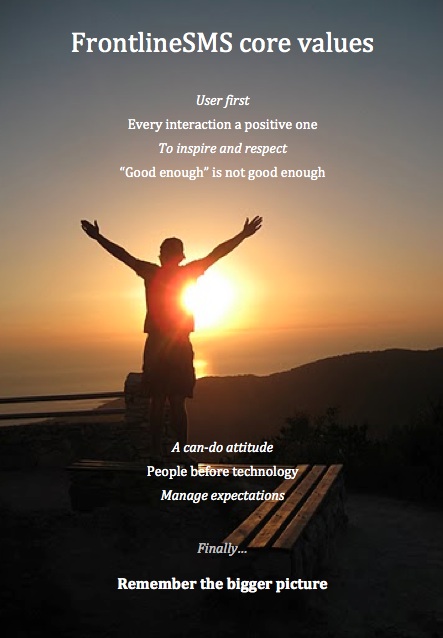
Each and every one is important to us: Putting users ahead - and at the heart - of everything we do, striving for a positive interaction with anyone who comes into contact with our work, aiming to inspire others whilst respecting a diversity of views, always reaching for better, fostering a positive "anything is possible" attitude, making sure we continue to put people - and their needs - ahead of the aspirations of the tech community, managing expectations both internally and for our users, and finally - constantly reminding ourselves why we do what we do.
As we continue to grow as an organisation, maintaining and reinforcing these values will be an increasingly important part of not only who we are, but who we become.
Mobile technology: Developing Africa?
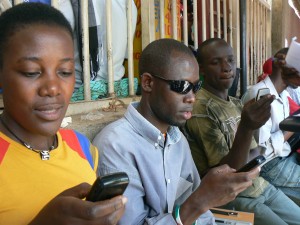 By Kike Oyenuga, FrontlineSMS Project Assistant
By Kike Oyenuga, FrontlineSMS Project Assistant
The ICT4D community has often turned its head towards the potential role of mobile in African development. But a challenge posed by the Royal African Society at an event at London’s School of African and Oriental Studies last week was: “Are the claims that mobiles are aiding development as clear as they seem?”
FrontlineSMS Founder, Ken Banks, participated in the debate titled, “Mobile technology: Developing Africa?” which set out to offer fresh perspectives to this increasingly analyzed sector. Ken was joined on a panel by Marieme Jamme, CEO of SpotOne Solutions and co-founder of Africa Gathering and Nick Short, a lecturer at the Royal Veterinary College who is working in mobile disease surveillance in East Africa.
The panel discussed the ways in which mobile technology is helping both to improve the flow of information both within development organizations and also providing increased access to information in Africa more generally. The discussion covered a range of topics; the role of innovation, the many potential uses of mobile for development, and the role of corporate responsibility of mobile phone operators and manufacturers.
The presenters gave accounts from their personal experiences working with mobile technology in their respective fields, and explained why it is such a valuable tool with broad application potential. Also discussed were the challenges of applying mobile technology effectively in rural or remote settings and the importance of scaling down technology to fit the capacity of the people using it the most.
Drawing on his experience of combining his role as a veterinarian with technology, Nick Short spoke of using mobile mapping and geo-spatial tools in his work in documenting and tracking livestock diseases and possible epidemics and said that the technology could be used in many types of crisis mapping. He gave the current East Africa food security issue and real-time aid donation as prime examples.
Adding to a point emphasized in Marieme’s presentation - on the importance of mobile technology to maintain connectivity to vulnerable communities - Ken then focused on the macro view of how mobile technology can transform engagement of development and aid work. He noted the challenge that people with various skill sets are often located far from the people they are helping, and it is by connecting these groups that stakeholders can benefit from each other.
Technology allows more people to be involved in the process of development, by strengthening capacity and simultaneously allowing those that benefit to have agency in how technology is applied in their respective communities. Citing multiple examples of this, Ken elaborated on the use of FrontlineSMS technology in the poll monitoring process by Nigerians during the recent presidential elections, as an example where people were empowered to conduct election monitoring on their own terms.
Questions for the panel underscored the continued debates around mobile’s role in African development. One audience member questioned whether mobile phone companies were being socially responsible enough in giving back to the communities that they profit from. This was underlined by her assertion that companies provide a vital service to people in developing nations yet set the cost of phone credit at a price prohibitive to most. This audience member also wondered at the irony of it costing less to call Africa from the UK than someone in Africa calling her. Ken’s response was that we needed to a look at the broader picture. He highlighted the fact that much of the mobile infrastructure that we see across Africa today was built by private sector investment, and that if rolling out telecommunications across the continent had been an international aid project we’d likely not be anywhere near where we are today.
An overarching message embodied by the discussion was that the development community musn’t be mesmerized by technology, rather it should focus on the context in which it will be used and allow for appropriate solutions to evolve while bearing that in mind.
Mobile technology and the last mile
em>By Ken Banks, FrontlineSMS Founder. Re-posted from www.kiwanja.net Since our founding in 2003, kiwanja.net has been primarily focused on serving the needs of the smaller, local, grassroots NGO community. FrontlineSMS is testament to that approach – a low-tech, appropriate technology which works on locally available hardware and without the need for NGOs to employ the services of teams of technical experts. We haven’t got everything right, and FrontlineSMS remains a work in progress, but we’re excited about where we are, how we got here and where we’re headed.
 We were recently approached by Philip Auerswald, Editor of “innovations“, to write an article on that journey, and our approach to mobiles-for-development. The result was a tri-authored piece by three members of the FrontlineSMS team – Sean McDonald, Flo Scialom and myself. A PDF of that article – “Mobile technology and the last mile” - is available here.
We were recently approached by Philip Auerswald, Editor of “innovations“, to write an article on that journey, and our approach to mobiles-for-development. The result was a tri-authored piece by three members of the FrontlineSMS team – Sean McDonald, Flo Scialom and myself. A PDF of that article – “Mobile technology and the last mile” - is available here.
About “Innovations”: “The journal features cases authored by exceptional innovators; commentary and research from leading academics; and essays from globally recognized executives and political leaders. The journal is jointly hosted at George Mason University’s School of Public Policy, Harvard’s Kennedy School of Government, and MIT’s Legatum Center for Development and Entrepreneurship”.
Many thanks to Phil and the “Innovations” team for inviting us to contribute
FrontlineSMS Semi-Finalists in 2011 Buckminster Fuller Challenge
We announced a few weeks ago that FrontlineSMS is 'rising to the Buckminster Fuller Challenge.' Now, after a rigorous vetting process, FrontlineSMS has been selected from a pool of hundreds of entries from over 35 counties to become 2011 Semi-Finalists! Named "Socially-Responsible Design's Highest Award" by Metropolis Magazine, the Challenge awards $100,000 to support the development and implementation of a whole systems-based solution that has significant potential to solve humanity’s most pressing problems.
FrontlineSMS was recognized for our work to bring the communication revolution to poor and remote regions, by harnessing the power and reach of mobile phones. Our software works without the internet, is easy to implement, simple to operate, and free to download. Results from a recent FrontlineSMS user survey help to illustrate our efforts to design software to work for "100% of humanity." In the survey 84% of users said they found our software easy to use.* Results also demonstrated that FrontlineSMS is being used in over 70 countries, and is particularly useful in areas of the world where other forms of communication can be difficult to access. One FrontlineSMS user said,
"I was using Frontline SMS to communicate with administrators, principals, and teachers in 50 secondary schools. In the area I was working landlines and faxes were largely unheard of, postal services unreliable, and even road access was poor. FrontlineSMS allowed me to coordinate communication between these schools to organise various school events and programs."
At its core, FrontlineSMS software turns a laptop computer and a mobile phone or modem into a mass messaging platform, empowering users to gather and share information of any kind, in any place. We see FrontlineSMS as part of a strategy that grassroots organizations around the world can adopt to leverage mobile technology for the greater good.We focus on reaching the “last mile” by designing the platform to take advantage of basic mobile phones already in the hands of billions of people throughout the developing world.
While the core platform is use-agnostic, our team is committed to incubating sector specific solutions. For example, our sister projects work with FrontlineSMS to confront challenges in access to healthcare, education, financial credit, legal representation, and media. There are clearly many other sectors in which FrontlineSMS can be utilized too. In our user survey examples emerged from over 15 sectors, including conservation, human rights, and agriculture, amongst others.
For FrontlineSMS, winning the $100,000 Buckminster Fuller prize would provide critical support for developing Version 2 of the software; an upgrade that will improve and extend core functionalities, making the software even more user friendly and interactive. Version 2 will help users of FrontlineSMS do more with the software than ever before.
As one of the 21 Semi-Finalists, FrontlineSMS will be featured as a top tier project in BFI’s Idea Index for the remainder of the program cycle. Semi-Finalists will be reviewed and discussed by 11 distinguished jurors including Valerie Casey, founder of Design Accord; David Orr, writer and professor of Environmental Studies and Politics at Oberlin College; Andrew Zolli, producer of PopTech and Danielle Nierenberg, Project Director of State of World 2011; and Sim Vanderyn, visionary ecological design pioneer.
Finalists will be announced in May and the winner, runner up, and honorable mention will be announced at the conferring ceremony in New York in early June.
About the Buckminster Fuller Challenge
The Buckminster Fuller Challenge is the premier international competition recognizing initiatives which take a comprehensive, anticipatory, design approach to radically advance human well being and the health of our planet’s ecosystems. The 2011 Semi-finalists are providing workable solutions to some of the world’s most significant challenges including water scarcity, food supply, health, energy consumption and shelter. The Challenge is a program of The Buckminster Fuller Institute which aims to deeply influence the ascendance of a new generation of design-science pioneers who are leading the creation of an abundant and restorative world economy that benefits all humanity. For more information visit: http://challenge.bfi.org/
*Our FrontlineSMS user survey received responses from 174 people







